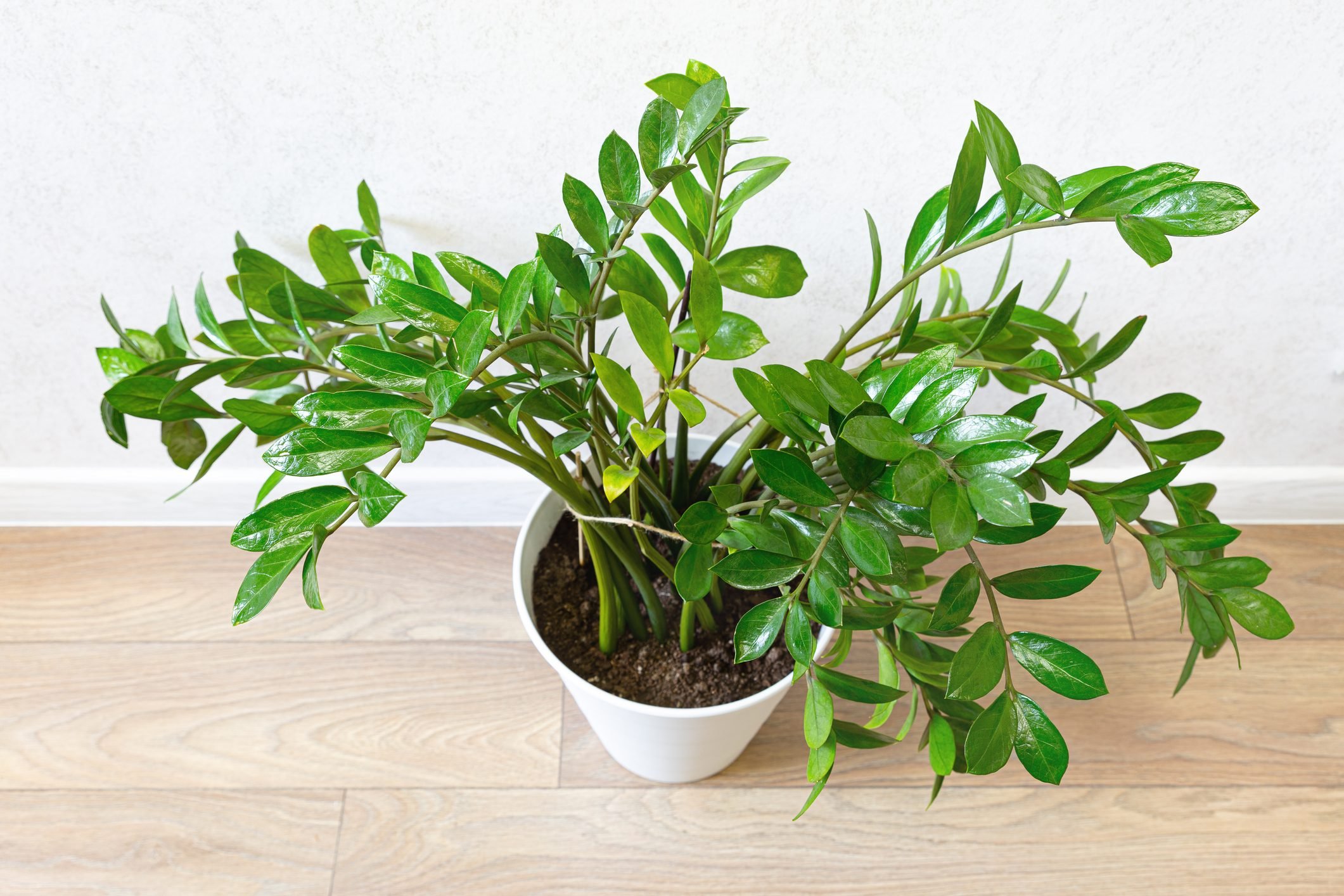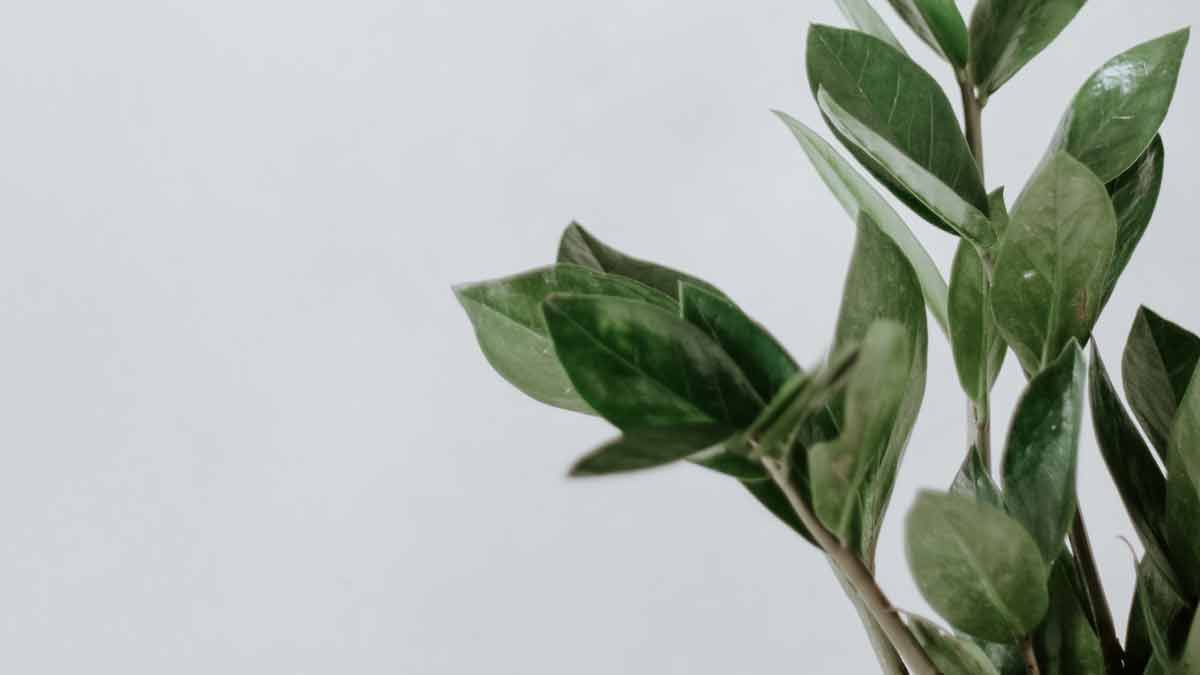Brown tips on ZZ plants, a common issue that can mar the beauty of these resilient houseplants, can be caused by a range of factors. Understanding the causes and implementing effective solutions are crucial for maintaining healthy and vibrant ZZ plants.
This guide delves into the various causes of brown tips on ZZ plants, providing clear explanations and examples to help identify the root of the problem. It also offers practical solutions, including adjusting watering schedules, providing proper nutrients, and managing environmental conditions, to address the issue effectively.
Brown Tips on ZZ Plant Causes

ZZ plants, known for their hardiness, can occasionally develop brown tips on their leaves. Understanding the underlying causes of these brown tips is crucial for providing appropriate care and maintaining the plant’s health.
Underwatering
Underwatering is a common cause of brown tips on ZZ plants. When the plant does not receive sufficient water, the leaves become dehydrated and the tips turn brown. Other signs of underwatering include wilting leaves, dry soil, and a lack of new growth.
Overwatering
Overwatering can also lead to brown tips on ZZ plants. Excess waterlogging can cause root rot, which prevents the plant from absorbing water and nutrients. Overwatered ZZ plants may also exhibit yellowing leaves, mushy stems, and stunted growth.
Nutrient Deficiencies
Nutrient deficiencies, particularly a lack of nitrogen or potassium, can cause brown tips on ZZ plants. Nitrogen is essential for chlorophyll production, while potassium aids in water and nutrient transport. Nutrient deficiencies can be identified by the presence of yellowing leaves, stunted growth, and overall poor plant health.
Environmental Stress
Environmental stress, such as extreme temperatures, low humidity, or exposure to harsh sunlight, can also cause brown tips on ZZ plants. Prolonged exposure to cold temperatures can damage the leaves, while low humidity can lead to dehydration and brown tips. Similarly, intense sunlight can scorch the leaves, resulting in brown or burnt tips.
Solutions for Brown Tips on ZZ Plants

Brown tips on ZZ plants can be effectively addressed by implementing a comprehensive care regimen that includes adjusting watering schedules, providing adequate nutrients, and managing environmental conditions. Additionally, preventative measures can be taken to minimize the risk of brown tips from recurring.
Watering
ZZ plants are drought-tolerant and require infrequent watering. Overwatering is a common cause of brown tips, as excess moisture can lead to root rot and disrupt nutrient uptake. Allow the soil to dry out completely between waterings, and avoid letting the plant sit in water for extended periods.
Fertilization
ZZ plants benefit from regular fertilization during the growing season. Use a balanced, liquid fertilizer diluted to half strength and apply it monthly. Avoid over-fertilizing, as this can burn the roots and contribute to brown tips.
Environmental Conditions
ZZ plants thrive in bright, indirect light. Avoid placing them in direct sunlight, as this can scorch the leaves and cause brown tips. They also prefer warm temperatures between 65-85°F (18-29°C). Cold drafts or extreme temperature fluctuations can stress the plant and lead to brown tips.
Preventative Measures
To prevent brown tips from recurring, consider using distilled water when watering. Tap water often contains minerals that can accumulate in the soil and contribute to brown tips. Additionally, avoid over-fertilizing and ensure the plant is receiving adequate light and warmth.
ZZ Plant Care and Maintenance
ZZ plants, known for their resilience and low-maintenance nature, thrive with proper care. Adhering to optimal watering practices, lighting requirements, and temperature ranges is crucial to prevent brown tips and ensure their overall well-being.
Watering Techniques
ZZ plants prefer well-draining soil and infrequent watering. Overwatering is a common cause of brown tips. Allow the top inch of soil to dry out completely before watering again. Use lukewarm water and water thoroughly until it drains out the bottom of the pot.
Lighting Requirements, Brown tips on zz plant
ZZ plants tolerate low light conditions but thrive in bright, indirect light. Avoid placing them in direct sunlight, as this can scorch their leaves and cause brown tips. East- or north-facing windows provide ideal lighting conditions.
Temperature Ranges
ZZ plants prefer warm temperatures between 65°F (18°C) and 75°F (24°C). Avoid exposing them to temperatures below 55°F (13°C) or above 85°F (29°C), as extreme temperatures can stress the plant and lead to brown tips.
Pest and Disease Management
ZZ plants are generally resistant to pests and diseases. However, they can occasionally be affected by mealybugs, spider mites, or root rot. Regularly inspect your plant for any signs of infestation or disease. If pests are detected, use an insecticidal soap or neem oil solution to treat the plant. For root rot, repot the plant in fresh soil and adjust watering practices.